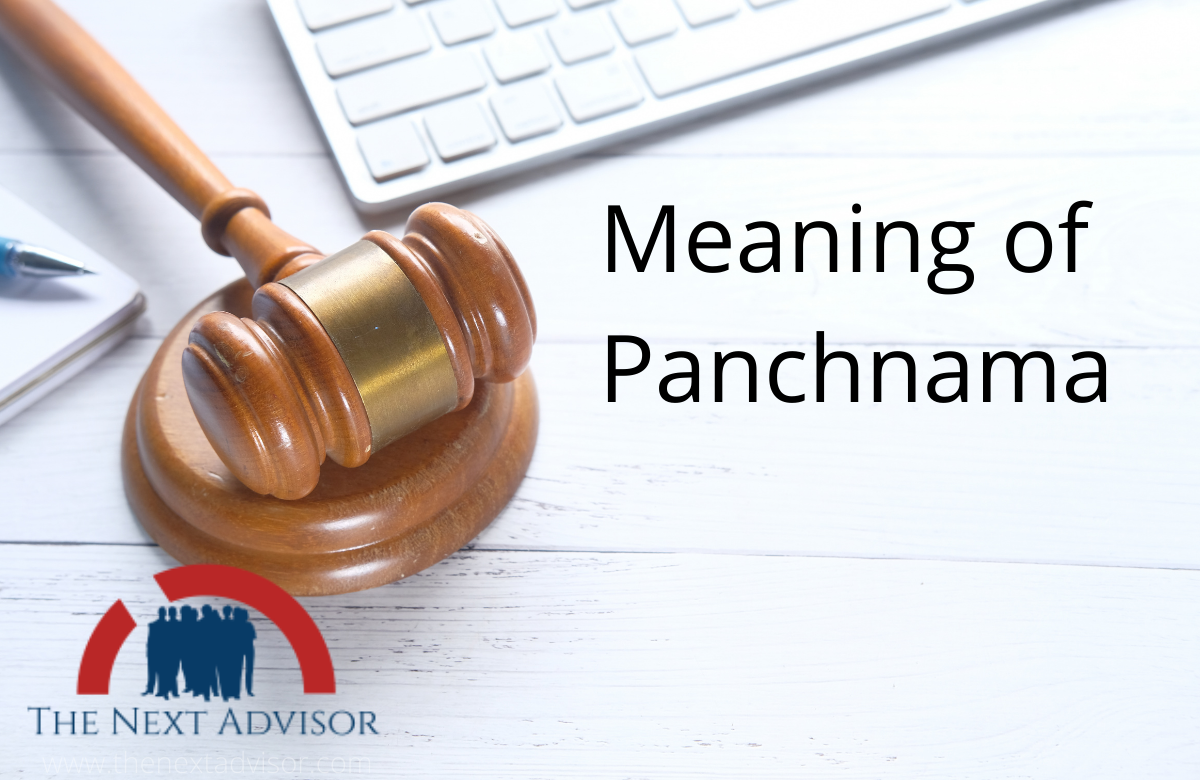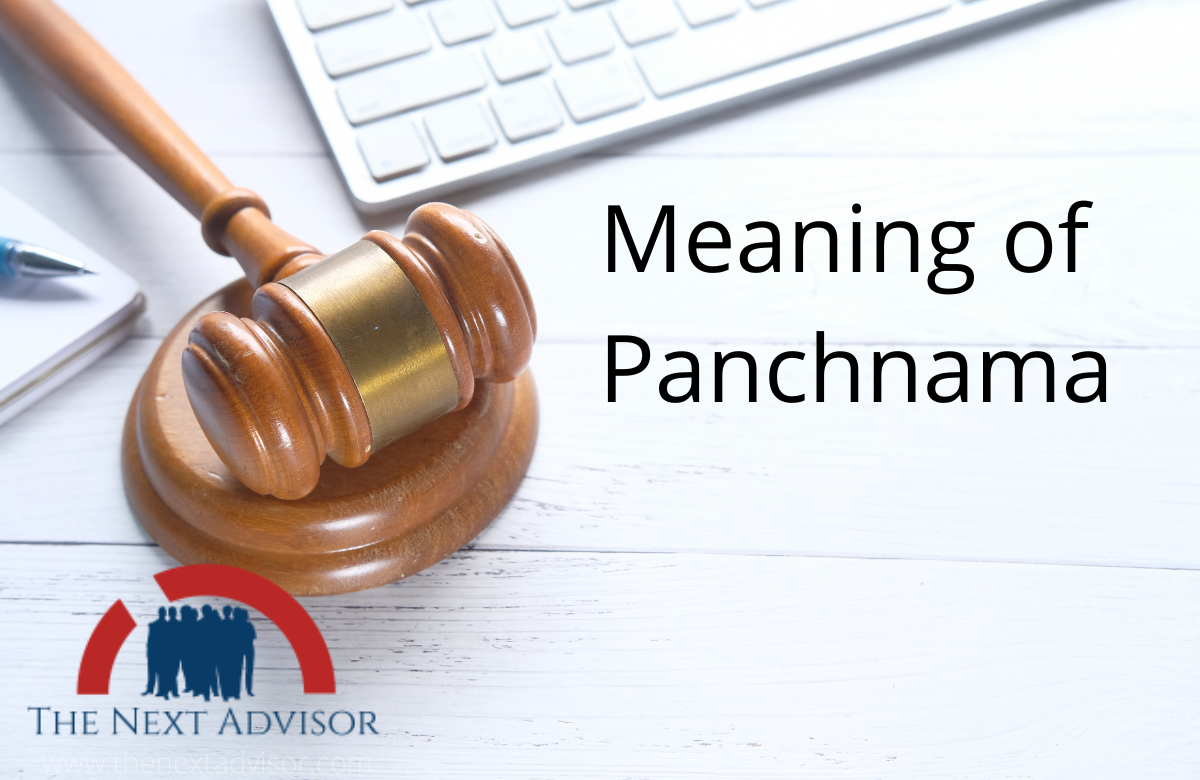Hi, today I will introduce you to the Meaning of Panchnama. Which is perfectly explained in very simple words.
Meaning of. – In Mohanlal Bababhai V.Emperor Beaumont, CJ. and Sen. J., observed thus:
” A panchnama is merely a record of what a panch sees. The only use to which it can properly be put is that when the panch goes into the witness box and swears to what he saw, the panchnama can be used as a contemporary record to refresh his memory.”
As has been held in several cases, Section 157 of the Evidence Ad is controlled by Section 162 of the Code of Criminal Procedure, and therefore if a statement, though falling under Section 157 of The Evidence Act, was also to fall under Section 162 of the Code, it would be Section 162 of the Code that would prevail an such a statement would be inadmissible. Reading Section 157 of the Evidence Act and Section 162 of the Code of Criminal Procedure together, it is clear that the word ‘ statement in Section 157 of the Evidence Act has a wider connotation than the same word used in Section 162 of the Code. But in order that a previous statement of a witness falls under Section 162 of the Code, two conditions have to be fulfilled, víz. :
(1) that it is a statement to a Police Officer; and
(2) that it is made in the course of an investigation under Chapter XIV, Criminal Procedure Code.
The question, therefore, is whether a panchanama is a record of a statement that falls within the ban of Section 162 of the Code? In a case falling under case falls into two parts viz. : illegal gratification, and Section 161 of the Penal Code or under Section 5 ( i ) ( d ) of the Prevention of Corruption Act, an offense thereunder is complete when an illegal gratification is accepted by an accused person. Generally, a panchnama produced in such a case falls into two parts viz:
(1) the recording of what occurred before the acceptance of an illegal gratification; and
(2) ) what occurred at the time of the acceptance and subsequently.
The first part of such a panchnama obviously would not fall under it cannot be said to have been made in the course of investigation of Section 162 of the Code, even if it were a statement to a Police Officer because cognizable offense no such offense having yet taken place. Does then the second part of the panchnama fall under Section 162 of the Code?
As stated before, a to As stated before, a previous statement of a witness complying with the conditions laid down in Section 107 of the Evidence Act is acceptable. The exception is that if it fulfills the two conditions laid down in Section 162 of the Code, it becomes inadmissible thereunder, except for the limited purpose m. therein stated. The important words in Section 162 of the Code are ” No, a statement by any person t aa Police officer.”
Therefore, the statement must be one to a police officer and unless it is to a police officer, it does not fall within the mischief of Section 162 of the Code. necessary that the statement in question must have the element of communication to a police officer. A panchnama is merely a record of facts that took place in the presence of panchas and of what the panchas saw and heard but is not a record of a statement communicated to a police officer, it would be acceptable under Section 157 of the Evidence Act and would not fall within the ban of Section 162 of the Code of Criminal Procedure.

Meaning of Panchnama
As its name signifies it is a document recording what the panchas saw and heard. At the same time if a panchnama does contain a statement that amounts to a statement communicated to a police officer during the course of his investigation it would fall within Section 162 of the Code. Therefore, every time when a panchnama is tendered in evidence, it would be the duty of the Court to ascertain whether any part of it falls within the mischief of Section 162 of the Code of Criminal Procedure and if it does fall, the Court should take out the portion from being admitted in evidence.
It was urged, that in the instant case, the panchama was not recorded by the panchas themselves but its contents were dictated by them and it was the police officer investigating this case who wrote it out and kept the Panchnama in his custody until it was produced in the trial court. The fact however that it was written out by the officer as dictated to him by the panchas would not, in our view, make any difference, for that is merely a mode in which the panchnama is recorded, nor would the officer keeping that document with him make any difference.
As held in Santa Singh v. the State of Punjab, the mere presence of a police officer when a statement is made does not by itself render such a statement inadmissible. So long as panchama is a mere record of things heard and seen by panchas and does not constitute a statement communicated to a police officer in the course of investigation by very distinction appears to have been made in 1961 ( 2 ) Guj LR 664 at page him, it would not fall within the mischief of Section 162 of the Code. This 673 of the report of counsel, in fact, was not able to point out any particular statement in the panchama which according to the above test, would tell within the mischief of Section 162 of the Code.

























